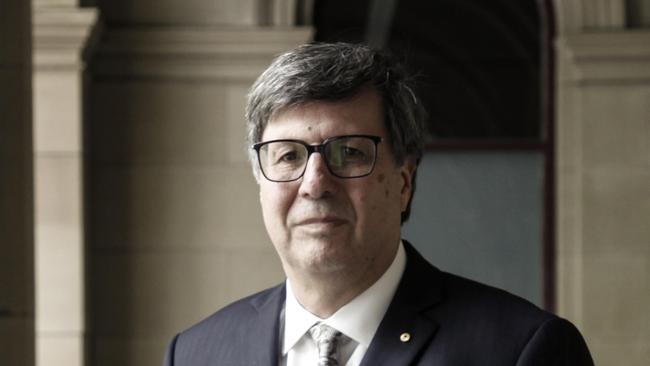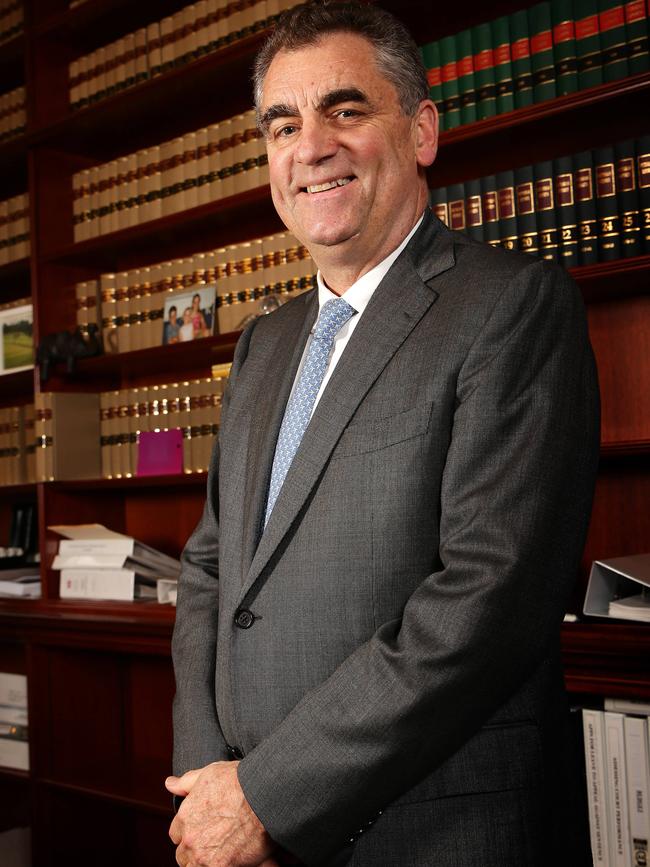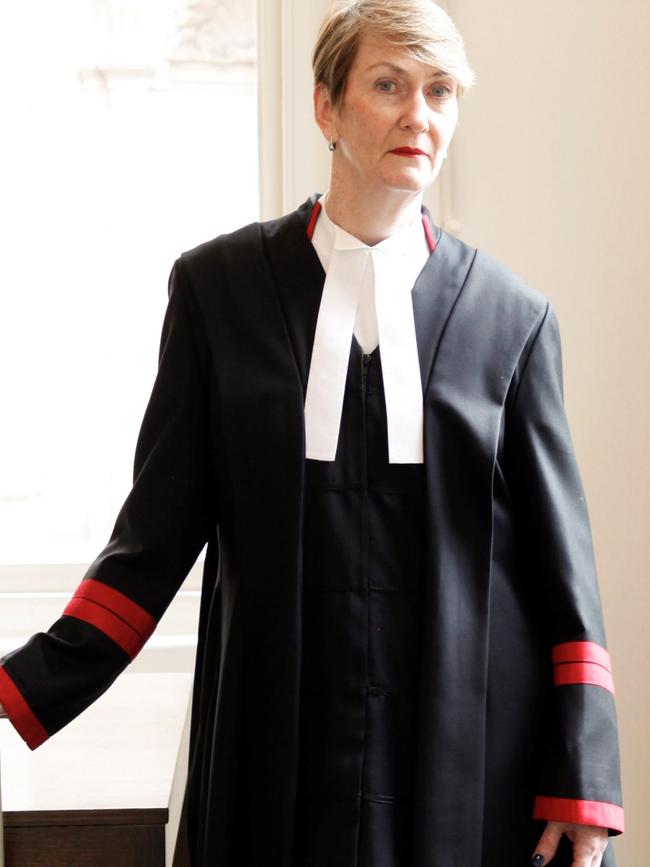Three brilliant minds that couldn’t agree
The three judges of Victoria’s Court of Appeal who ruled on Pell are all brilliant and experienced lawyers.

Mark Weinberg, the veteran judge who said he would have acquitted George Pell on sex assault charges, has been described as one the country’s “leading criminal law jurists”.
Justice Weinberg, in the legal profession for 50 years, has a long resume boasting success in academia, time as the Commonwealth Director of Public Prosecutions and years spent as a Federal Court judge and judge in Supreme and Appeals courts.
Writing in The Australian today, Mirko Bagaric, director of the Evidence-based Sentencing and Criminal Justice Project at Swinburne University, said Justice Weinberg’s ruling would encourage Pell’s legal team to mount a High Court challenge.
“In my view, Justice Weinberg is the leading criminal law jurist in the country and his standing in the legal community is likely to encourage Cardinal Pell’s legal team to appeal to the High Court,” Professor Bagaric said.
Leading criminal barrister Ian Hill QC said Justice Weinberg’s judgment would form part of appeal deliberations.
“Justice Weinberg is a well-respected jurist,” he said.
“If he believes the jury should have had a doubt, it’s worthy of consideration at least.”

During his lengthy career Justice Weinberg contributed to several law committees, was the dean of law at Melbourne University, published countless legal papers and worked on precedent-setting criminal appeal cases heard in the High Court.
He joined the Victorian Court of Appeal in 2008 after serving as a Federal Court judge for 10 years. He retired last year but agreed to sit as a reserve judge and in February sentenced Bourke Street killer James Gargasoulas to 46 years without parole.


He was appointed an Officer of the Order of Australia in 2017 for distinguished service to the judiciary and the law. The son of Holocaust survivors arrived in Melbourne at age 10 and attended a public school. He studied law at Monash University and began his career working for a personal injury lawyer in NSW.
In the appeal, he said he had doubts over Pell’s guilt. “Having had regard to the whole of the evidence led at trial, and having deliberated long and hard over this matter, I find myself in the position of having a genuine doubt as to the applicant’s guilt,” he said.
The other judges of Victoria’s Court of Appeal, Chief Justice Anne Ferguson and Christopher Maxwell, agreed to uphold Pell’s conviction. They said the abuse survivor, known as A, was a credible witness.
Chief Justice Ferguson became the first solicitor and second woman appointed Chief Justice of the Supreme Court of Victoria in August 2017 after joining the Appeal Court in 2014.
In her welcoming remarks as Chief Justice, she outlined her vision for greater diversity within the legal profession. She was admitted to legal practice in 1984 after graduating from Monash University as the top law student.
She started in insolvency at law firm JM Smith & Emmerton, which later became Gadens, where she made partner before moving to the firm Allens where she worked for a decade. Justice Ferguson worked on high-profile corporate cases as a solicitor including the collapse of the Pyramid Building Society in 1990 and Opes Prime in 2008.
Court of Appeal president Christopher Maxwell has a long history of championing social justice issues and human rights.
The Rhodes scholar served as private secretary to federal attorney-general Gareth Evans in the 1980s before making silk in 1998. He served as Legal Aid commissioner for seven years and as president of Liberty Victoria.
Justice Maxwell led it in a pro-bono action against the federal government for refusing to allow the MV Tampa to deliver more than 400 asylum-seekers to the Australian mainland in 2001. The High Court eventually dismissed the asylum-seekers’ application to be processed on the mainland.
He received a Companion of the Order of Australia in 2015 for “eminent service to the law and to the judiciary … through contributions to legal education and professional development, and as a leading supporter of human rights and civil liberties”.


